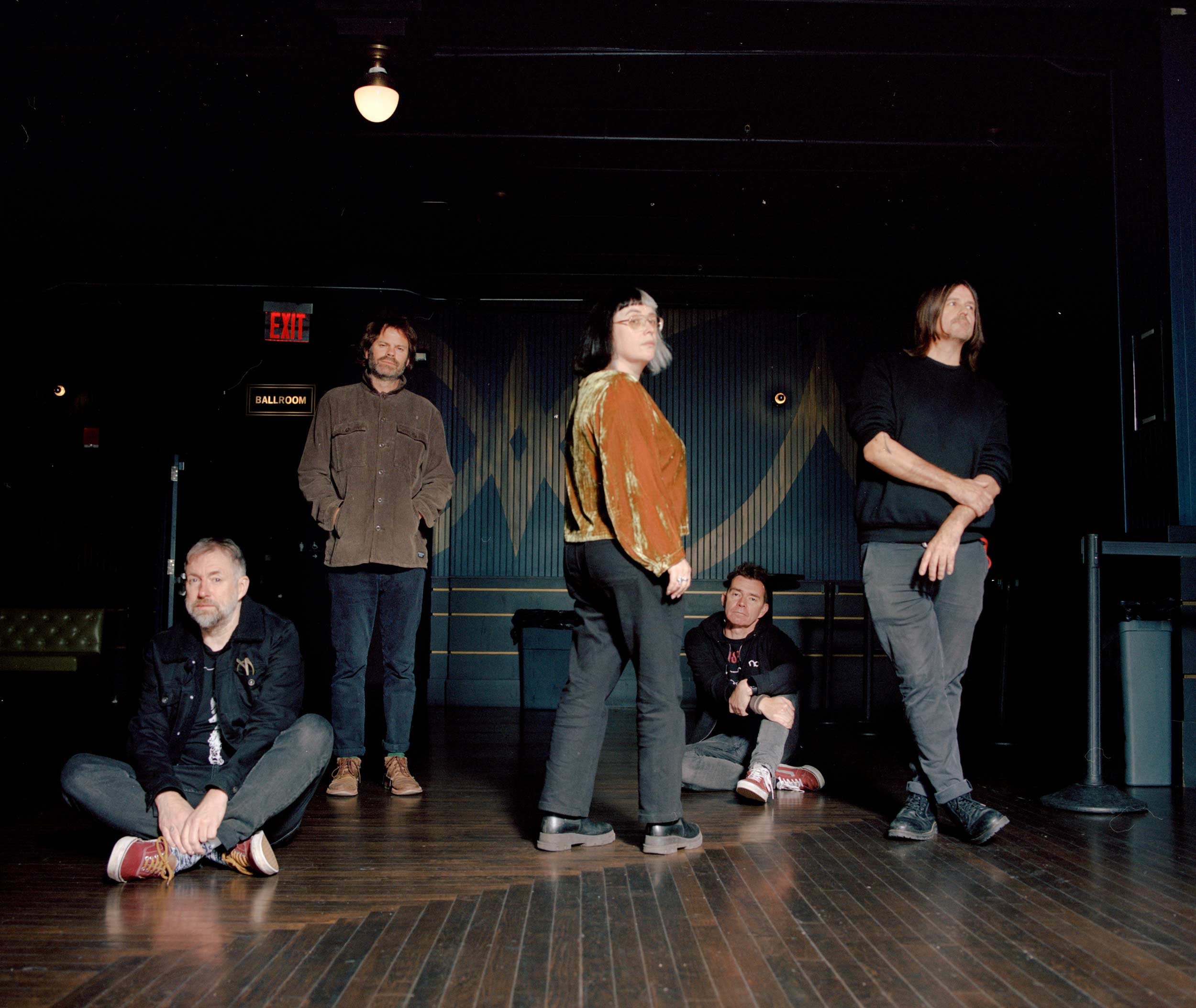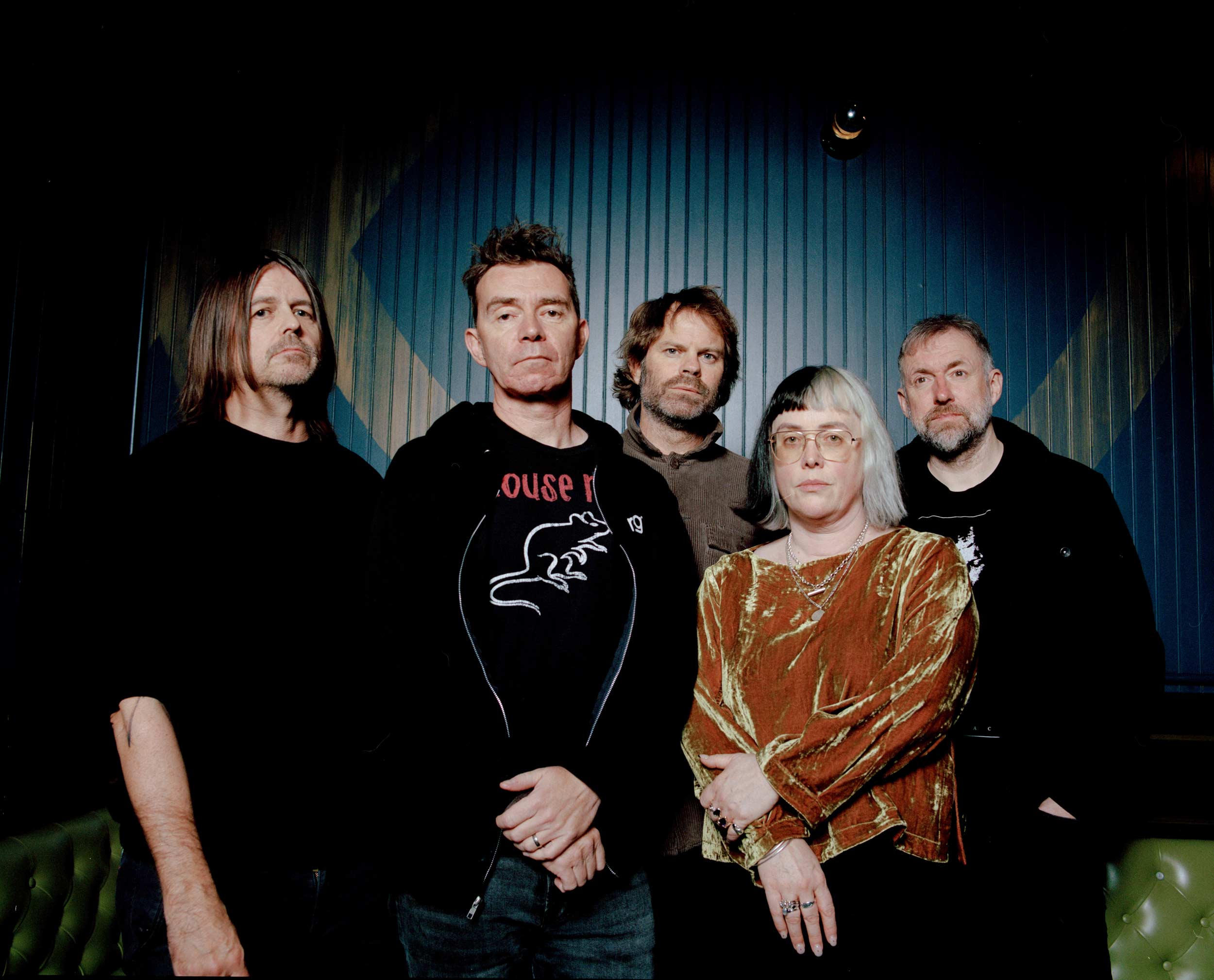Following the release of ‘everything is alive,’ Document caught up with the band on tour to explore the ways they’ve evolved, and the ways they’ve stayed the same
Attempting to unpack meaning from slowdive’s lyrics is more likely to reveal something about yourself than it is about the band. Neil Halstead isn’t bothered that his words are often misprinted, as he really only takes an hour or two to write them. But it can be confusing for Nick Chaplin at gigs, as maybe too high-quality sound monitors pick up the voices of people packed in the front rows, droning an array of incorrect lyrics back at the band. Simon Scott seems uncertain as to what the words really are. Rachel Goswell knows them—but she also knows that even the real ones are “just made up.” Christian Savill doesn’t have anything to say on the matter—he just laughs.
slowdive isn’t so much about words; their music is visceral. It’s why critics took a while to get it, trying to solve the songs rather than feel them, analyzing instead of indulging. Shoegaze is often typified as a “wall of sound,” but it’s more dimensional than that; walls of sound is perhaps more accurate, or maybe walls and floors and ceilings of sound, as the genre is all-consuming.
It’s escapist, really, honing in on a particular feeling until everything around it—including the reasons for that feeling—no longer exists. Such an indulgence is probably the best explanation for why, across decades, slowdive’s fanbase trends toward the teens. As they’ve grown older, the members of the band have surely grown wiser, while still maintaining that unself-conscious surrender to emotion, typically sucked from one’s spirit on the way to adulthood.
everything is alive is proof of that enduring pulse—simultaneously sad and sparkling, grounded and uplifting. And despite slowdive’s insistence to the contrary, the album’s words do seem like they must mean something. “Time runs on once more / Another ghost is born / I feel like change will come / When the night rolls in,” Halstead (probably) sings. These are intimate reflections on life and death and aging and growing. Maybe calling them meaningless is more evidence of slowdive’s eternal adolescence: reluctant to share, flaming within.
Following the release of everything is alive, Document caught up with the band on tour to explore the ways they’ve evolved, and the ways they’ve stayed the same.
Megan Hullander: There are loads of really young people lined up outside.
Nick Chaplin: It never ceases to surprise me how many people are into what we do.
Megan: Do you think there’s something about shoegaze that appeals to a younger audience—maybe the emotional weight is particularly resonant to teens? Or do you still feel as emotionally indulgent as you were when you started the band?
Rachel Goswell: I think we’ve all lived several lifetimes since [we formed]. I certainly remember how it felt. And I’m glad I don’t feel that way anymore.
Simon Scott: I think they all just really like Rachel—she’s like a god to them.
Rachel: [Laughs] I’m a spectral being.
It makes sense that those older songs are resonating with young people, because we were young when we wrote them.
Megan: I think the new music is resonating with them in that same way, though.
Nick: As an outsider within the band, the new songs still feel like slowdive to me. Obviously, there are differences, because we are older.
Simon Scott: Well, we’re the same people—same political ideas and music taste and stuff. But we’re not teenagers anymore. We all have teenagers now.
“We’re the same people—same political ideas and music taste and stuff. But we’re not teenagers anymore. We all have teenagers now.”
Megan: Have you found yourselves doing an inverse of my parents don’t get me with your kids?
Simon: I’ve got an 18 year old who went on a ski trip, and one of her friends started playing slowdive. And they didn’t believe her dad was in slowdive. She realized, God, maybe Dad’s not an idiot. Well… He still is, but he’s in a cool band, at least.
Nick: It’s not just a hobby.
Megan: The lowercase song titles feel really in tune with the youth. Was there any meaning behind that decision, or was it just a style thing?
Neil Halstead: I think that was an accident. [Nick] kept going on about capitalization…
Nick: In the first few mock-ups, it was inconsistent. And that sort of thing really bothers me. Then it came back all lowercase. But all the old records were lowercase, weren’t they?
Neil: No, they weren’t. slowdive has always been lowercase, though.
Megan: Do you find that fans unravel the lyrics, or derive meaning from pieces that are more incidental like that?
Neil: People usually make up loads of lyrics that are wrong that I see on YouTube and stuff.
Megan: Does that bother you?
Neil: No, I only spend, like, an hour or two writing them. Sometimes, on Instagram, I correct people.
Simon: On Spotify, I think, the lyrics for ‘shanty’ are [listed] as, like, ‘I was a junkman.’ And of course it’s wrong. Why would it be that? What does that even mean?
Rachel: I think that is the actual lyric…
Neil: It is.
Simon: Oh. Well, what the fuck does it mean?
Rachel: It’s all just made-up.











